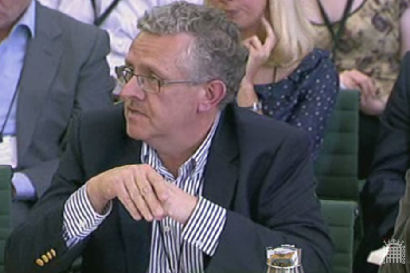MORE DETAILS have emerged of why Virgin Trains has started legal action against the Department for Transport, following the award of the Intercity West Coast franchise to FirstGroup. But what had appeared to be criticism by Virgin of the DfT's methods of analysing franchise bids has now become an accusation that the Department broke its own rules.
On 15 August, Virgin founder Richard Branson had said: "Based on the current flawed system, it is extremely unlikely that we would bid again for a franchise."
Then on 2 September, Virgin Trains chief executive Tony Collins had rebutted DfT claims that Virgin had only started to object when it looked as if First would win, when he said: "We have had several meetings over the last two or three years where we have expressed our concerns over the bid process, how it evaluates the bids and how it leads to the sorts of failures we have seen on EC with NatEx and GNER."
When both Virgin and FirstGroup gave evidence to the House of Commons Transport Committee last night, some of the already-heard arguments and accusations were repeated, particularly the Virgin allegation that the FirstGroup business plan is 'undeliverable' -- a claim vigorously denied by FirstGroup CEO Tim O'Toole.
But the issues that seem set to be aired in the High Court were also discussed, and it was then that Virgin revealed that what had been thought to be a general attack on the DfT's methods is actually a more specific allegation that the DfT had not kept to the rules during the West Coast competition.
Tony Collins told the Committee: "We believe the DfT haven't followed their own rules in the process. We have accepted the process is what it is. The court case is we don't believe they have applied the rules of that process correctly."
The core of the argument appears to be the size of the 'subordinate loan' that First must provide as a buffer against failure, which has been set at £200 million according to statements made during the Committee hearing but which the DfT had said on 15 August was a loan of £190 million plus £10 million of shareholder capital.
The equivalent for Virgin was £40 million. Tony Collins said: "When we apply the same calculation to what we believe the FirstGroup bid is, we come up with a much higher figure -- more like about £600 million."
When he gave evidence, FirstGroup CEO Tim O'Toole defended his company's predictions of growth on the West Coast route, which are some 2 per cent higher than Virgin's. He said: "Our belief is that the growth you've seen over the last ten years can be continued, and should be continued, if the Government is going to get the advantage of the extraordinary investment it made in this line. We think that contrary to Virgin's depiction of their stewardship in recent years, since they've been in revenue support they've had very little incentive to drive growth." He added that FirstGroup would introduce better yield management and a new fares structure, which would cause growth to continue.
On the question of the subordinated loan of £200 million, he said: "We think we understand how Virgin tried to back-engineer and get to the £600 million, we understand the formula. We believe they have used the wrong inputs because when we do it we get to the same number the Department got to. I think the problem is simply that they [Virgin] don't understand our model because they haven't seen it."
Meanwhile, speculation has been growing that control of the West Coast intercity service may have to pass to the Department for Transport on 9 December, unless the controversy can be resolved soon, because there is no likelihood that the new contract can be signed while a legal challenge exists. A DfT spokesman said that the Department had been examining its 'responsibilities' as operator of last resort under the Railways Act, and conceded there was a 'focus' on contingency plans.
Some industry experts are also warning that the contest could have to be started again. David Moore and John Milligan, who are partners in solicitors Clyde and Co., noted that: "If Virgin's challenge is successful or the DfT takes the view that there have been irregularities ... the award procedure would have to be conducted afresh. This would be likely to involve a fresh prequalification process."
The next milepost in the West Coast crisis is tomorrow (Wednesday), when new transport secretary Patrick McLoughlin is due to appear before the Commons Transport Committee.
Beyond that, a date is still awaited for a preliminary High Court hearing of Virgin's claims against the DfT. If a full judicial review is then granted, temporary West Coast renationalisation would seem increasingly likely.


